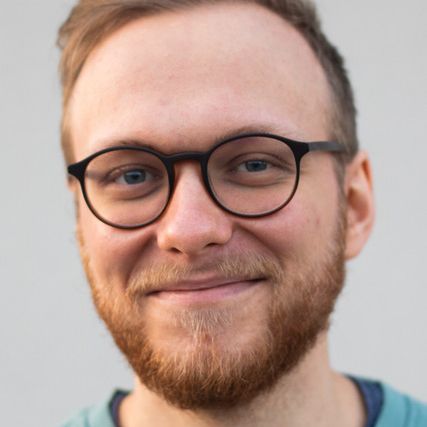Interview with PlanetS Alumni – Andrin Kessler

Andrin’s journey started with a PhD with PlanetS after studying Theoretical Physics at the University of Bern. For four years, he researched the formation of planets using computer models as part of the Theoretical Astrophysics Group in Bern. He has recently chosen to leave academia, but he is still working on modelling the real world. This time, it’s all about trains in his role as a Business Analyst at SBB IT. Andrin is now part of a team effort to provide and improve the systems which are running 24/7 in the train control centres of SBB, managing the railway traffic. Analysing how well these systems are working and planning their further development, is part of his responsibilities. Hopefully, you can feel the impact of his work directly when you experience fewer and shorter delays in your train journeys around Switzerland!

What inspired you to pursue your current career and how did the experience at PlanetS influence that choice?
It is important to me to do something I believe is worthwhile for society in some way. Science and working at PlanetS certainly ticked that box but outside of academia this becomes much less obvious to find. This led me to the semi-public sector where I successfully found an interesting place.
What do you enjoy most and least about your current job? What keeps you motivated?
Just as during my PhD, I find the subject and goal of the project interesting and rewarding, but I do not enjoy the purely technical parts too much. This is why I did not turn out to be a software engineer but am rather more involved in the planning and analysis. I find improving public transport quality for everyone very worthwhile and motivating. The friendly environment with my colleagues keeps spirits high in the day-to-day which is something I have learned to appreciate immensely during my PhD.
What challenges did you face transitioning from PlanetS to your current position, and how did you navigate them?
Everything is different, not just the role or subject: the organisation structure, the colleagues, the tools used, the commute, the offices, the work hours, etc. It helps me to find a balance between the similarities to my previous work which give me some sense of stability and taking on the new things one by one. Fortunately, I am offered the required flexibility and time to do this.
What would you suggest to a PlanetS colleague who would like to move outside academia? What helped you in this transition?
I was comfortable with the decision to leave academia quite quickly, but imagining myself doing something else after 4 years of thematically focussed research was not easy at all. What helped me most in the search for a job, was to identify which types of work (specific tasks, skills, interactions, problems) I most enjoyed during the PhD and then trying to rediscover these aspects in other professions. This is also good preparation for any job interview!
Have you encountered imposter syndrome or self-doubt while looking for your next job, especially if you moved outside academia? How did you address it?
I think this is almost unavoidable. After combing job listings, I noticed that no one is looking for me and my specific skillset exactly. But on the other hand, the person described in almost all these job listings doesn’t exist either! My advice is to look for jobs you really want to do first and foremost, rather than obsessing with listed qualifications you may or may not entirely fulfil. Of course, this does not change the fact that rejection is not fun, but at least I overcame self-doubt preventing me from even trying to apply.
What do you miss from your time at PlanetS?
Academia offers an inherently international and diverse work environment which is hard to come by outside of it. The regular exchange with your peers – people from adjacent fields and disciplines from all over the world – is so valuable. I look back very fondly at many PlanetS GAs and JURAs. Although not entirely absent, this aspect is unfortunately much less prevalent in my current position.

